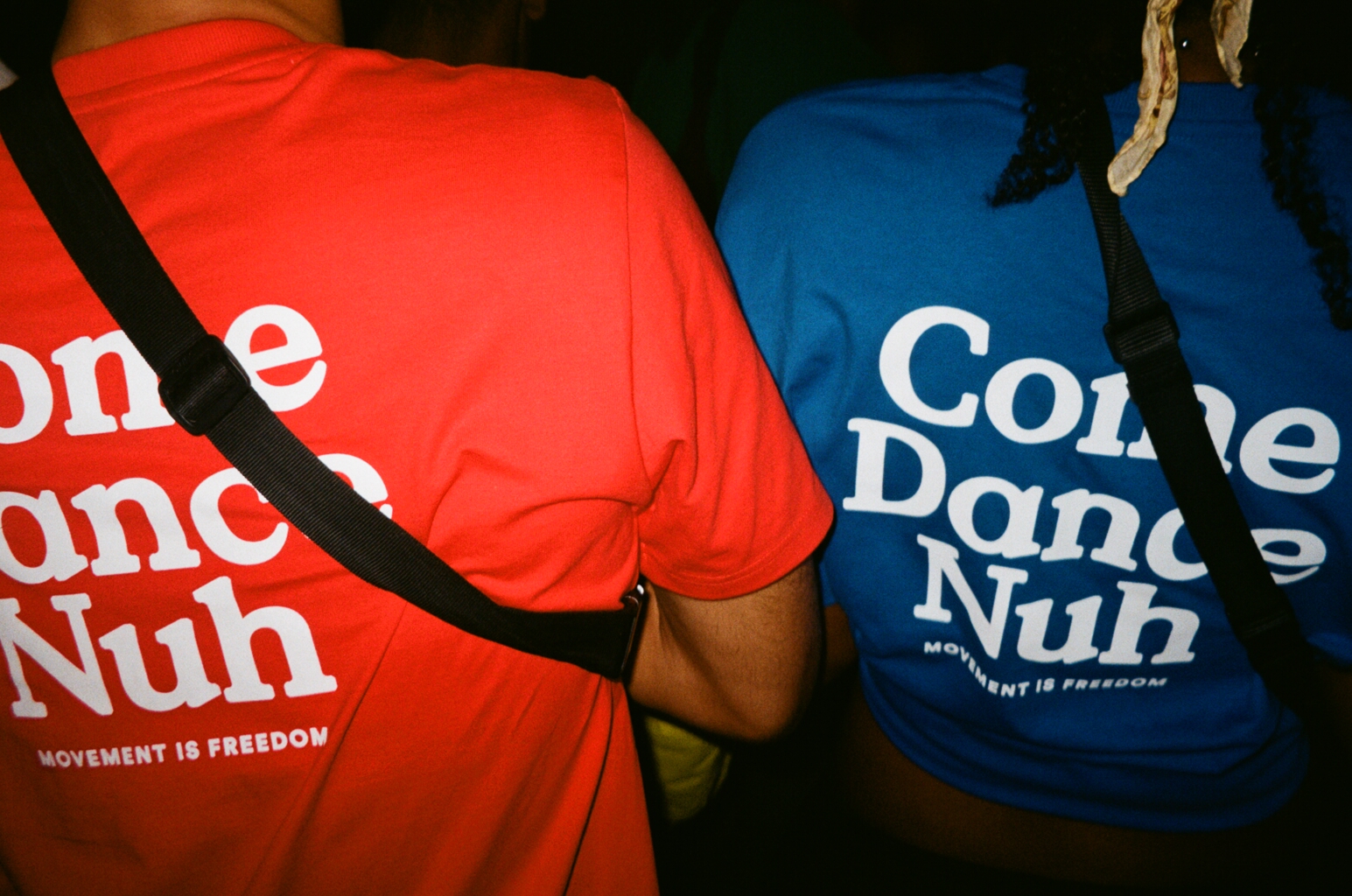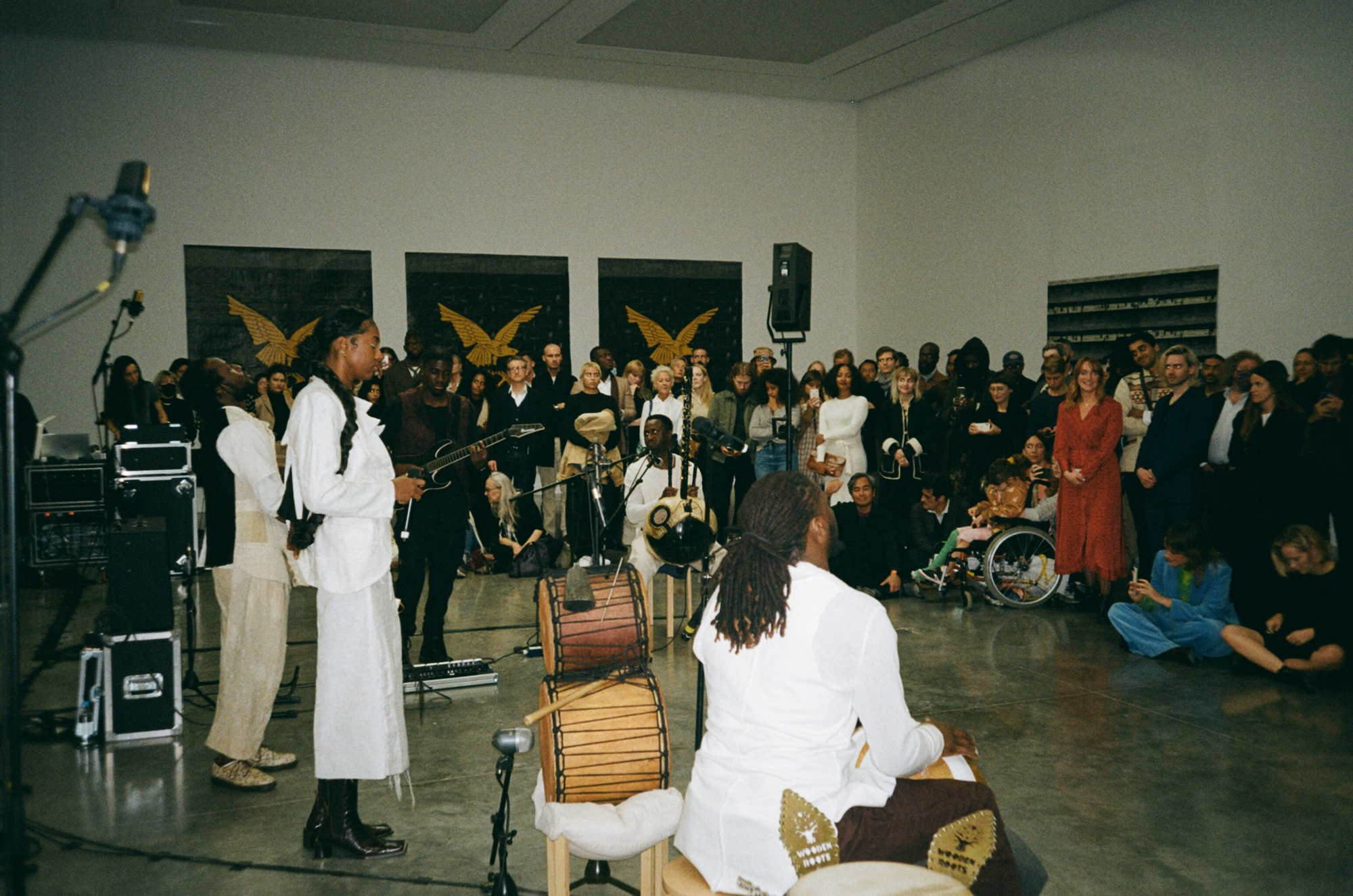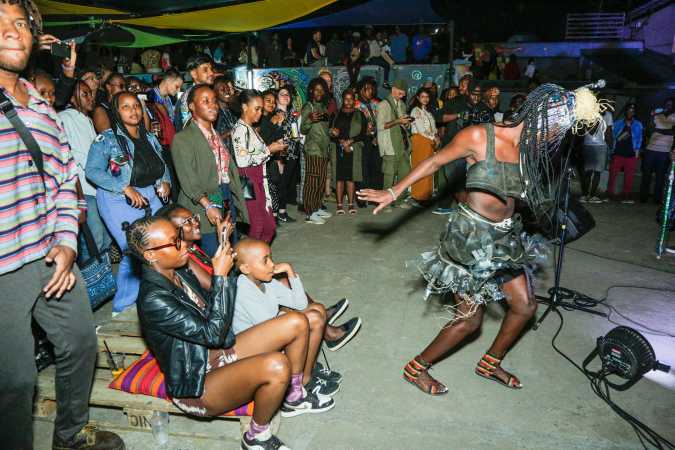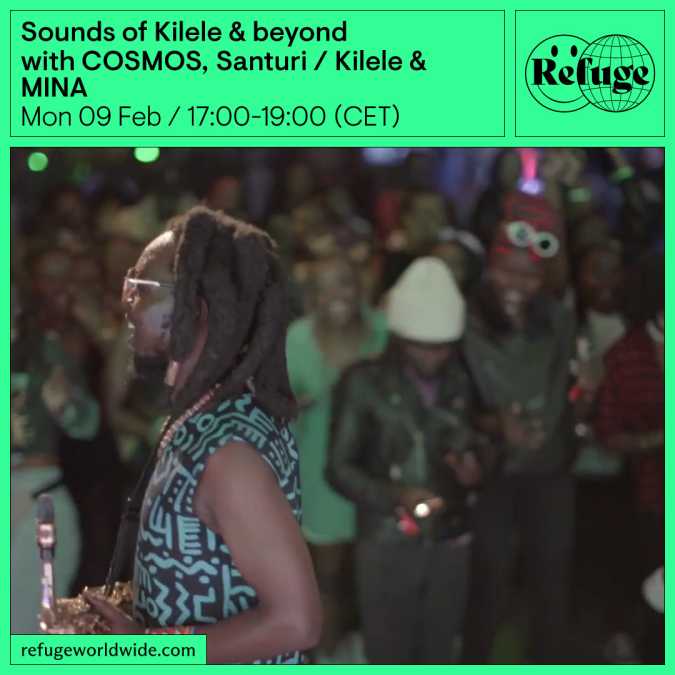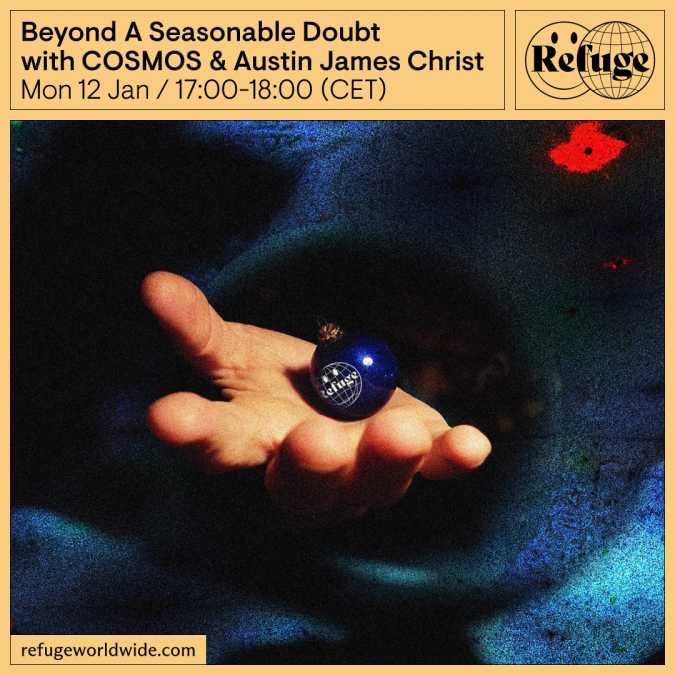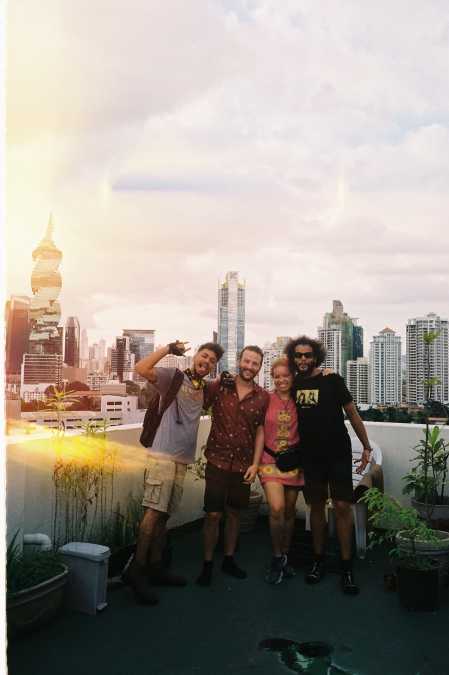COSMOS x Touching Bass announce their 2024 Embassy in London, UK
Touching Bass is a London-based musical movement founded by Errol and Alex Rita, comprised of a community-come-club night, record label, staple NTS Radio show, concert series and curatorial studio.
Since its inception, Touching Bass has steadily established itself as one of London’s most important musical incubators, gaining cult status for its community spirit, musical eclecticism and intentional approach.
As a guest curator for Le Guess Who? 2024, Touching Bass will showcase the whole spectrum of their sonic vision: Calm Roots is a program that highlights meditative music, jazz spirituality and dub poetry. Inna, on the other hand, is a tribute to the past, present, and future of Soundsystem culture, featuring the likes of King Jammy and Aba Shanti-I.
And as one of COSMOS 2024 Embassies, Touching Bass will grant us an insight into the concepts behind their multiple sound and community practices.
For this interview, we sat down with Touching Bass co-founder, Errol, at his recent DJ gig in Cologne, Germany, to learn more.
Interview by COSMOS
Photos courtesy of Alex Rita, Nora Cammann & Adama Jalloh
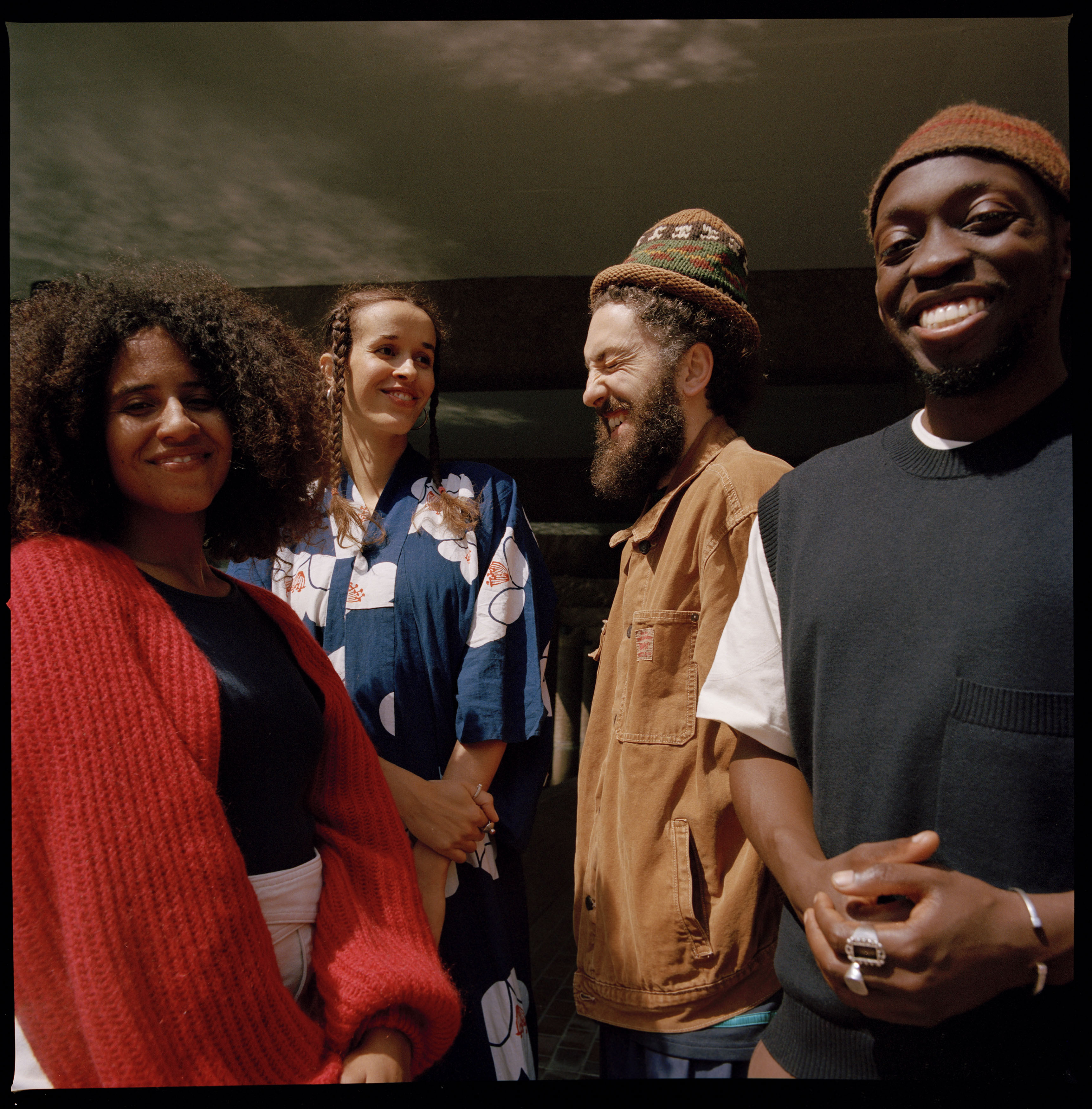
What’s a musical hub in London that had a big influence on you in recent times?
Total Refreshment Centre felt like a real magnet for the kind of music that I was into then. Around that time, I was listening to a lot of jazz. I came quite late onto jazz, actually through hip-hop. Listening to samples and everything. At that time, there was such a nascent UK jazz scene, and I was lucky to be meeting some of the guys very early. I guess it felt like my first experience of being a part of a scene, because I grew up in Bow in East London.
Bow E3, as it was many times immortalized in UK Grime songs…
Yeah, “Bow E3, I'm so E3“, exactly. Grime was my first understanding of that kind of thing. I was too young to be a part of it proper. I used to be the young’n playing football with the likes of {grime artists} Ruff Sqwad, Tinchy Strider, all of those guys.
I read that you went to Notting Hill Carnival from a young age, too.
Yes. I was 2 or 3, dressed in dashiki and a matching hat following the floats.
Carnival is part of my foundational understanding of community. Ultimately, that's what it comes back to, right? A community around music. Music is one of the greatest conductors of culture, especially the things happening around the Soundsystem. My first experience of that was being at my family's house parties. It was always multi-generational, people were always dancing, there was always food…
What makes people gather this way? How does furniture affect how people are able to conversate? Why is good sound important? How does the architecture of a club affect your experience?
If the food is too good, everyone's gonna be in the kitchen!
My dad wasn't in Soundsystems himself, but some of his friends were. I remember going to my Uncle Paxton's house, and he had a soundsystem in there that some clubs would be jealous of. And my uncle Dave, he drove a taxi, and we were riding with him sometimes in between the fares, and the radio was always on. It was all reggae on pirate radio stations. I guess I was in and around it all the time.
Did you ever find it intimidating to try and start something from the ground up? In a place like London, places like Bow and later South London specifically?
I mean, rather than be fearful of it, I used it as fuel. I used it as school, you know, to learn what works.
Growing up in Bow instilled resilience and fearlessness; particularly in the pursuit of creative progression. I’ve spoken before about the difficulty of finding a regular home for Touching Bass over the years. Being from the ends gave me the determination to know that we’d find somewhere eventually. There was no other choice but for it to happen. I must add that Plastic People is another important North Star in terms of perseverance. I caught the very tail end of its existence.
The legendary club in Shoreditch that played an important part in, for instance, the evolution of dubstep with its FWD>> party…
Right, I went to FWD>> but I was too young to go to the Co-Op nights and these things. But I got to experience that room.
I’m curious about this notion of fearlessness. When I listen to Touching Bass, what stands out to me is how your selections and releases cut through this whole old music/new music dichotomy. Nothing from Touching Bass ever feels dated, it all has a certain timelessness to it… is that part of the fearless curatorial approach, to trust your own taste and sensibilities to showcase music that borrows from the past without being retro?
Yeah, totally. I feel like an old soul. Sometimes I feel like I maybe should have existed in the late 70s, when they were making crazy jazz funk.
But that is essentially what everyone has been doing. That's what grime was. That's what garage was. All these things are just handbooks, a manual for what was going on. When artists and creatives are fearless, that's when you create forward movement.
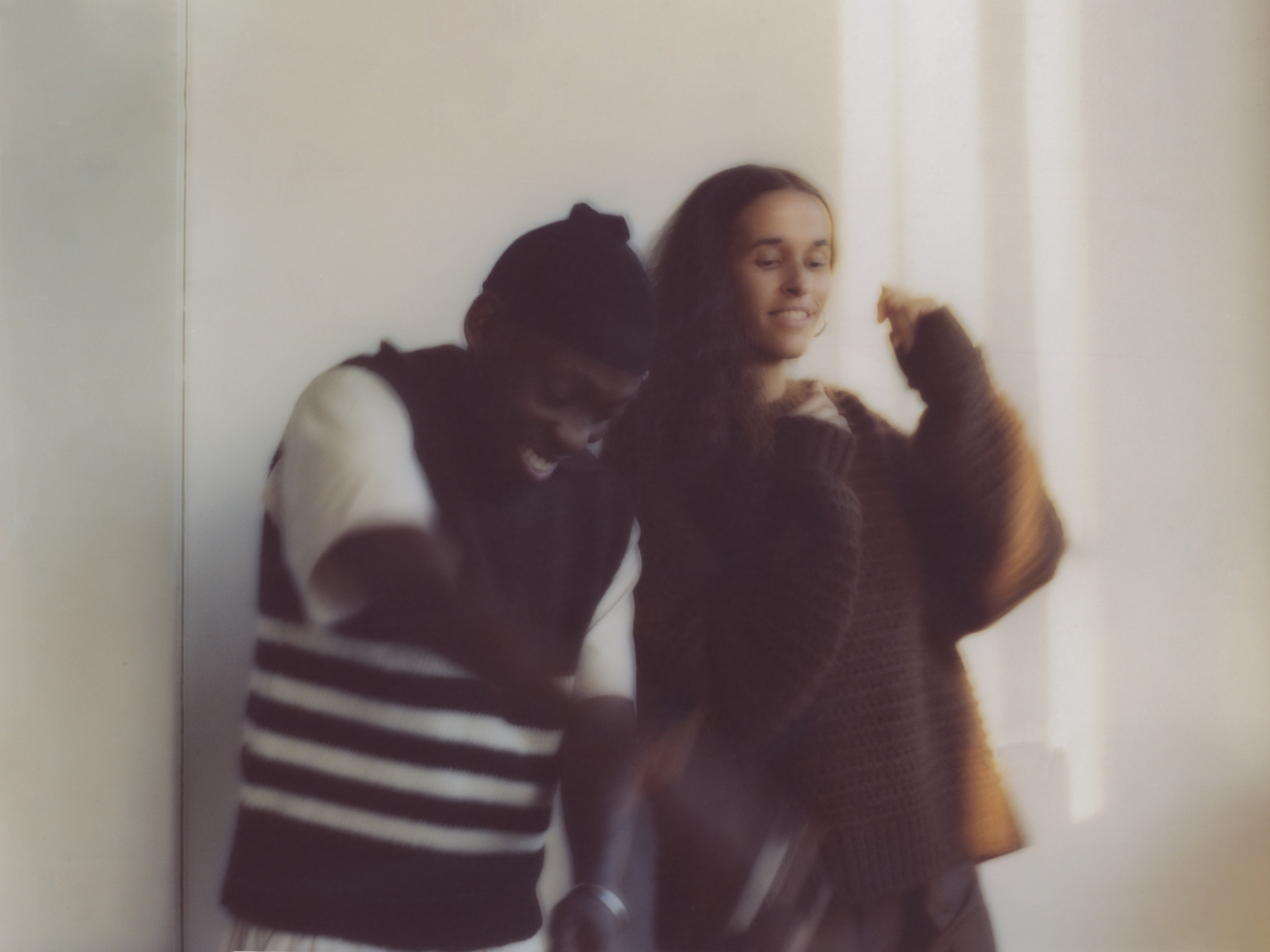
Touching Bass has been many things since its inception. It is many things still. How do you feel about Touching Bass in its current form?
Firstly, it's not a collective, as many people tend to think.
Touching Bass started off with it being seven or eight people. Over time, many artists decided they have their own projects that they want to explore. Naturally it fell on the laps of myself and Alex and the team that we now have. But those same people are still very much a part of the ecosystem of Touching Bass. They're still all close friends and we stay in contact regularly. But I also have to be honest in that the way that it is operating now, someone has to call the shots. That’s Alex and me. But again, Touching Bass has multiple definitions.
Can you break them down?
Sure. Firstly, I like to define Touching Bass as a musical movement. I like the term musical movement because not only is it open enough to incorporate the various forms that we explore - the NTS Radio show, club night, concert series, record label and curatorial studio.
So, movement is almost like a visual and descriptive reminder to ourselves as to why we're doing it…
The physicality of it?
Yeah, but people forget about that in their daily routine. I know I certainly do.
It just has shifted. Gen Z kids, naturally, their club hall is social media, TikTok. That's where their community lives. But intrinsically, we know as humans that we need to gather. We are communal animals.
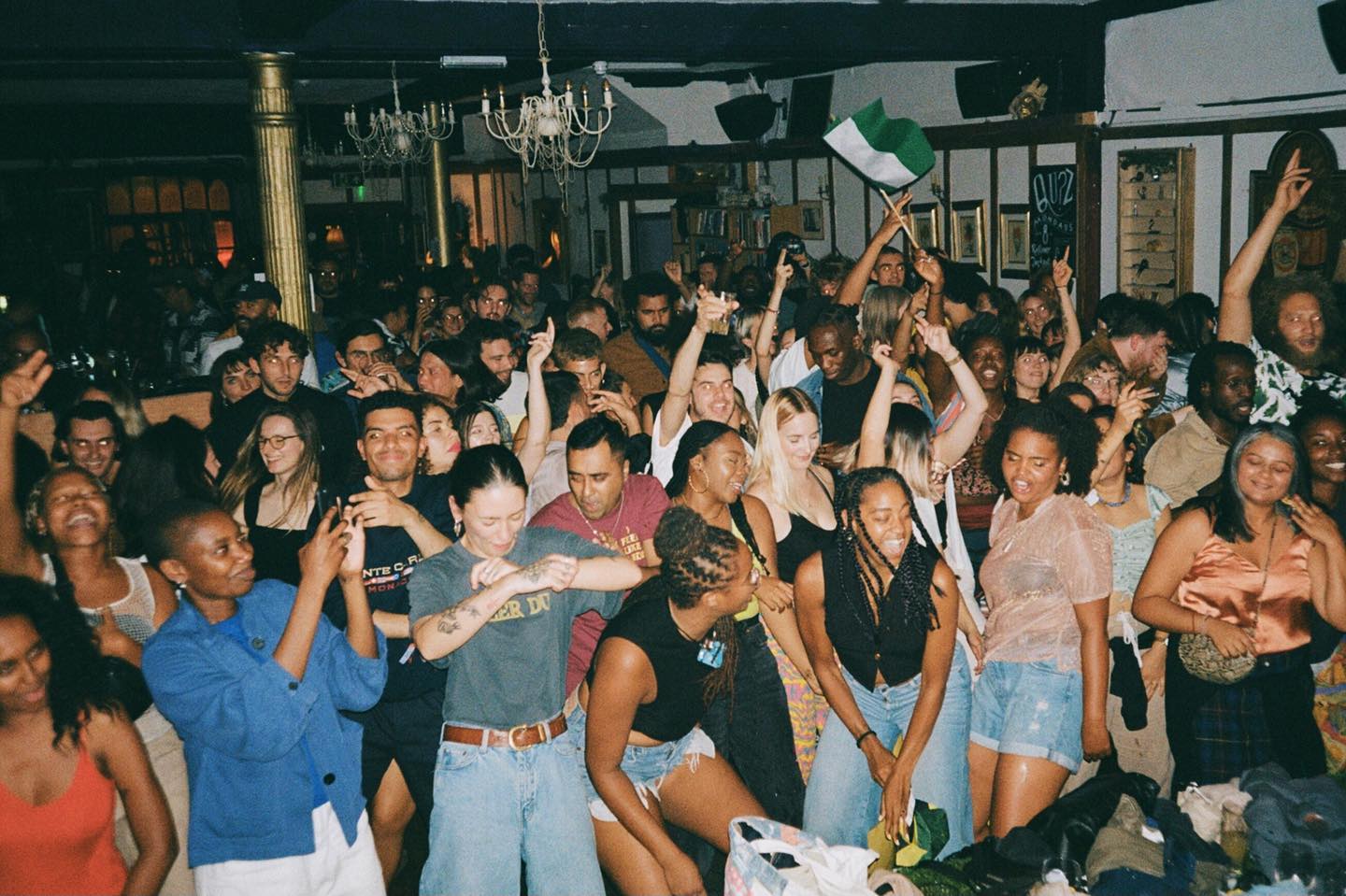
When Touching Bass were approached by Le Guess Who? to be a guest curator, how did you tackle that task? For instance, it’s great to see how you’re not only curating for the big booming Soundsystem but also for the more contemplative moments in the churches of Utrecht…
Even that comes back to our idea of what a good gathering is. Once you understand the elements, you see that ambient and meditative music feels right in a certain setting. Inna, the night where we're celebrating the Soundsystem continuum, it's just an homage to the past, present and future of what I learned at Notting Hill Carnival. What I learned from Aba Shanti-I, you know?
Going into the curatorial aspects of Touching Bass a bit deeper: you just showed your first film installation. I wasn’t lucky enough to see it, but I heard tremendous things about how you displayed it as a 5-screen projection…
They've always had an amazing eye for film and for capturing moments. Serendipitously, Tayo had met a woman called Dr Aleema Gray, who ended up being the lead curator for a crucial exhibition called “Beyond the Bassline – 500 Years of Black British Music” at the British Library.
The exhibition chronologically follows the music all the way back to the first recorded evidence of Black British music, back to the trumpet player for one of the Tudor kings. And so it follows all the way through to the modern day, where you have grime and jungle being talked about. And then the last room, Aleema had this idea to look at the idea of the future of Black British music.
That’s quite a task.
It's quite a task, yeah, and it's funny, because, you know, at the beginning her idea was very much a regular short film on one screen. But us being us, and Tayo and Rohan being the artists that they are, they went above and beyond. They wanted to challenge themselves to make this a piece of art that could be lived in.
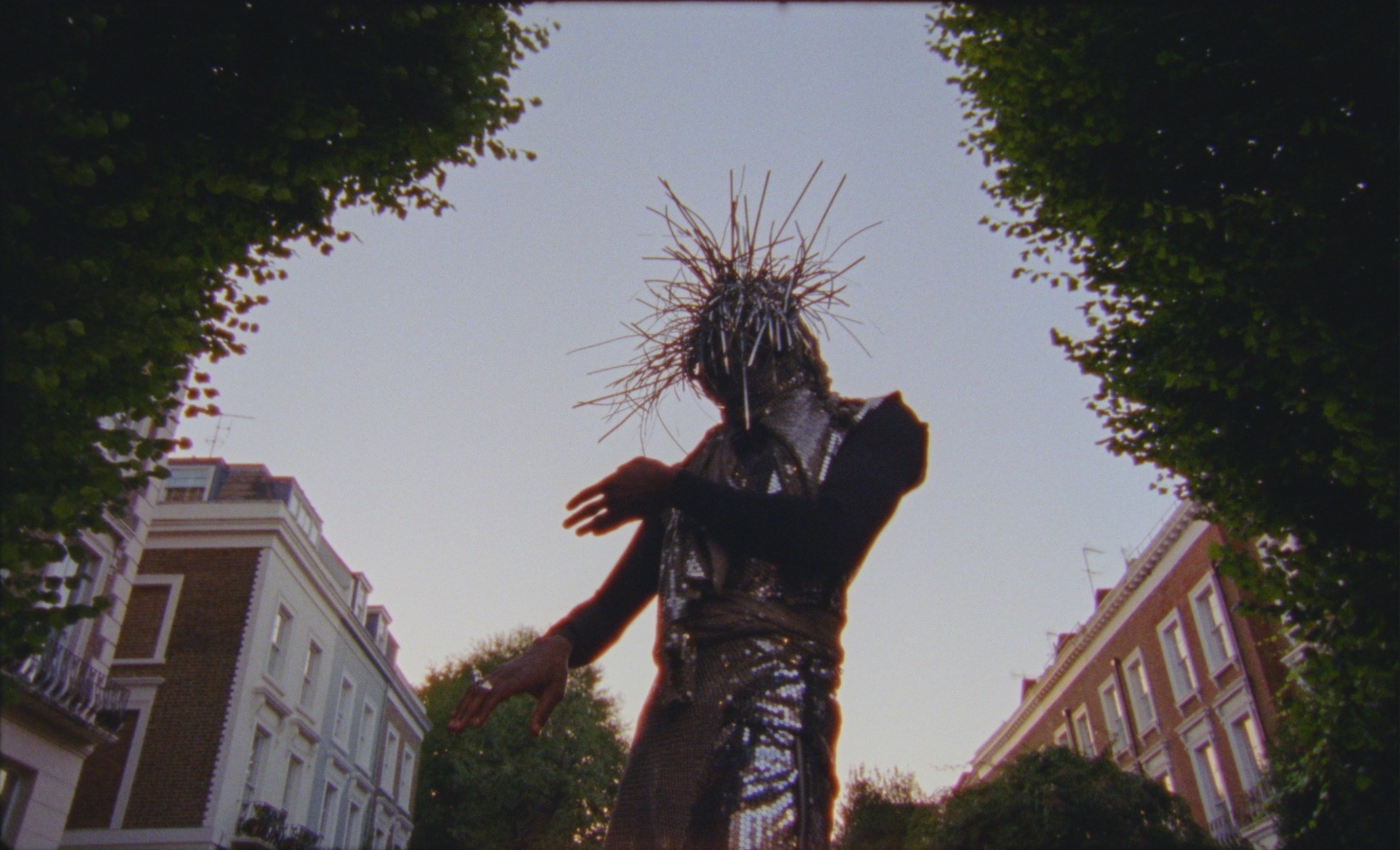
Can you give us a hint about the future you map out in this film?
That's why it's a five-screen installation. One screen is on the ceiling, there’s cushions everywhere. People are encouraged to lie down and live in what feels like a womb, a cocoon. At Le Guess Who?, we will show a special one-screen version, but we made it so that people will still be able to live within the piece.
As one of our COSMOS Embassies, we asked you to create another short film. How did you approach that?
To address the “whats” and “whys”. I won’t say too much, but it shows why we're doing things the way in which we're doing them, the importance of dancefloors, the importance of communities, the importance of physical spaces as places of refuge. Places to let loose, especially in an age where it feels like we're being hammered from every side. Again, Tayo and Rohan have made that film. It's a conversation between myself and Alex, just casually talking about Touching Bass. And we work with a lot of archive footage.
You just mentioned the importance of rest and recreation for Touching Bass as a template for the clubbing experience. You’ve also experimented with non-alcoholic nights. Is that an approach to counter the purely hedonistic experience of going out?
I would disagree in saying that it's not hedonistic.
I'm not against drinking or drugs or anything. But even alcohol consumption in club spaces has its roots in capitalism, because alcohol is so cheap to sell and so it becomes a natural profit driver. But people getting wasted is also a byproduct of the hardships of life. It's just a release in a different way.
On that note: How do Alex and you, and your crew get to create so many things, in one of the most expensive places on earth?
When we got turned away from clubs because our crowd was not drinking enough, we had to get inventive. Let's use different types of spaces - restaurant back rooms, photographic studios, Caribbean takeaways - and find our way. By no means a new story. Generations before had to do the same thing under different pretenses. It was dangerous to gather in other spaces. Although the fight for our lives looks different in 2024, that need to gather is no different.
